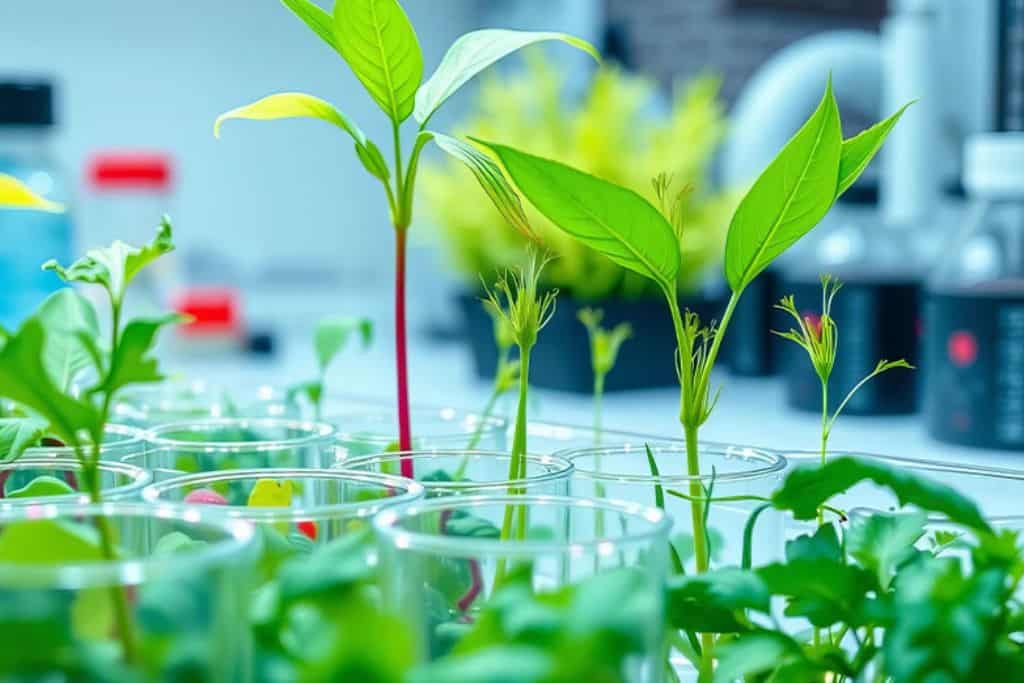
Advancing Plant Genetics with Synthetic Biology at The University of Western Australia
The field of plant genetics is experiencing a revolutionary shift thanks to pioneering efforts in synthetic biology. Recently, a significant milestone was achieved when an international team, including researchers from The University of Western Australia (UWA), secured over $12 million in funding to develop the world’s first synthetic plant chromosome. This project exemplifies the innovative potential of synthetic biology to transform agriculture, crop resilience, and plant research.
For those interested in the intersections of plant genetics and synthetic biology, UWA’s involvement underscores the university’s standing as a leader in cutting-edge scientific research. This article explores the details of this groundbreaking initiative and its implications for future crop development and plant science.
What Is a Synthetic Plant Chromosome and Why Does It Matter?
A synthetic plant chromosome represents a completely engineered genetic structure designed from fundamental building blocks. Unlike natural chromosomes, which contain genetic information inherited from parent plants, synthetic chromosomes are built artificially with specific traits and functions in mind. They are meticulously designed to serve as independent, inheritable units within plant cells, with the potential to introduce novel characteristics or improve existing ones.
Developing a synthetic chromosome capable of functioning within plants like potato or moss signifies a major leap forward. It opens up possibilities for engineering crops with enhanced resilience to climate change, increased yields, or the ability to produce valuable bioproducts. This technological breakthrough could revolutionize plant breeding, moving beyond traditional methods to precise genetic customization.
Key Components and Innovation in Building Synthetic Chromosomes
Design and Construction
The project involves designing synthetic chromosomes that integrate essential genetic elements such as synthetic centromeres and telomeres—structures crucial for chromosome stability and inheritance. Using model plants like Physcomitrium patens (a type of moss), researchers can develop and test these synthetic chromosomes efficiently. The experiments in moss serve as proof-of-concept before transferring successful designs into crop plants such as potatoes.
The Role of Synthetic Biology
Synthetic biology enables scientists to rewrite the genetic code with unprecedented precision. In this initiative, researchers aim to go beyond genome editing—currently used to make specific changes within existing DNA—and instead create entire chromosomes from scratch. This approach provides greater control over the traits that can be introduced and can significantly accelerate crop improvement efforts.
Impacts on Agriculture and Crop Resilience
The ability to write and implement synthetic chromosomes in plants can lead to crops that better withstand environmental stresses such as drought, pests, and diseases. Moreover, it paves the way for engineering plants that produce pharmaceuticals, biodegradable plastics, or other useful materials efficiently and sustainably.
This technological development aligns with global efforts to meet food security challenges posed by climate change and a growing population. As Dr. James Lloyd of UWA remarks,:
“While synthetic chromosomes have been achieved in yeast and mammalian cells, this is the first attempt to create and deploy one entirely from scratch in a plant.”
Collaboration and the Future of Synthetic Plant Chromosomes
The project exemplifies international collaboration, bringing together researchers from UWA, the University of Cambridge, biotech companies like Phytoform Labs, and academic institutions like Macquarie University. Such partnerships are vital for combining expertise in plant biology, synthetic biology, and engineering.
Looking ahead, the successful development of synthetic plant chromosomes could lead to a new era in agricultural biotechnology. The ability to precisely design crops tailored to specific environmental conditions or production needs can transform farming and plant research globally.
Educational and Research Opportunities at UWA
Students and researchers at the University of Western Australia are at the forefront of this emerging field. UWA’s strong emphasis on research in plant genetics and synthetic biology provides opportunities for aspiring scientists to contribute to these transformative projects. The university’s commitment to innovation positions it as a hub for developing sustainable and resilient agricultural solutions.
Shape Your Future at UWA
The development of the first synthetic plant chromosome marks a pivotal moment in the evolution of plant sciences. With the support of generous funding and international partnerships, researchers are pushing the boundaries of what is possible in plant genetics. As the project progresses, it holds tremendous promise for creating more resilient, productive, and sustainable crops—an essential step towards securing global food systems and advancing agricultural research.
Discover what makes the University of Western Australia a great choice for international students. Fill out the form to connect with a Studygram expert counselor who will guide you through selecting the right program, understanding entry requirements, and preparing a strong application. Take the first step toward studying in Australia with the right support behind you.


